Dementia is commonly something that develops in people who are over the age of 65, but there are cases where people can develop symptoms of this illness sooner. Early onset dementia can drastically impact someone’s life in more than just their health, but with their financial and social lives as well. With the limited treatment options and few resources for younger people with dementia, many are turning to CBD hemp oil for early onset dementia.
CBD oil may be able to help with early onset dementia by helping with the mental health symptoms like anxiety and depression, helping to detox the brain and body, protecting cells from further damage, and helping with symptoms like memory loss and brain fog. By interacting with the endocannabinoid system, CBD oil may have the potential to help with many factors involved with early onset dementia.
What Is Dementia?
Dementia is a disorder that is progressive and affects your cognitive abilities like motor functions, memory, visual perception, time-management, and focus. This can be caused by changes in the brain like a build up of tau proteins that cause Alzheimer’s or from an injury like vascular dementia.
What Is Early Onset Dementia

Early onset dementia is a term used to refer to patients who start developing dementia before the age of 65. Dementia can be caused by Alzheimer’s disease or other diseases and conditions, and people who have early onset dementia may be in any stage of it be it early, middle, or late. Most commonly, the symptoms begin to show in the person’s 40s or 50s and start to get worse over time.
Signs And Symptoms Of Early Onset Dementia
- Short term memory changes
- Hard time finding the right words
- Mood changes
- Apathy
- Confusion
- Hard time completing normal tasks
- Poor sense of direction
- Repetitiveness
- Difficulty following storylines
- Struggling with change
Common Risk Factors Of Early Onset Dementia
Not everyone will develop dementia, and not everyone will develop it early. Scientists aren’t entirely sure what the cause of this illness is, but they have noticed some key risk factors that may increase your likelihood for developing early onset dementia.
Genes
Your gene pool plays a huge role in how healthy you are going to be. There are certain rare genes that people can inherit that bring on dementia-like symptoms in as early as their thirties. When Alzheimer’s disease is caused by these genes, it is called “familial Alzheimer’s disease,” and multiple generations down the line can be affected.
Alcohol
Alcohol can cause liver problems, mental health issues, and brain damage which may be why chronic drinking has been a common denominator in many patients with early onset dementia. A study showed that 57% of the participants with early onset dementia also had chronic drinking issues.
Depression
Scientists have also figured out that people who have early onset dementia may also most likely have issues with depression. Studies have shown that depression may cause brain damage in places like the hippocampus which is where a part of your memory is controlled.
Stroke
Research shows that a third of stroke survivors suffer from developing post-stroke dementia. If you have a stroke at a younger age, this means that you are also more likely to develop dementia.
Difficulties Of Getting Dementia At A Younger Age
Dementia isn’t easy for anyone young or old. But there are different obstacles that younger people have to face when it comes to developing dementia that the elder community doesn’t have to worry about.
Misdiagnoses
When someone goes to the doctor because they are feeling brain fog or confusion, the first thing a doctor thinks isn’t going to be dementia. Some doctors may not feel comfortable diagnosing early onset dementia or know how to diagnose it at all. Getting an accurate diagnosis can be a long and frustrating process.
Lack Of Services
Many of the dementia services are targeted toward seniors. This can cause a unique set of problems for people who are under the age of 65 because these potentially helpful programs aren’t as tailored to their needs.
No Financial Care
A lot of people who have dementia are living off of retirement and social security. If you are in your forties and have dementia, you’re likely still working and unable to retire. People under 65 likely do not have Medicare to help with their funds as well as help them find services suitable for them. If the person working is fired or leaves their job before getting a diagnosis, work disability might not be formally recognized.

Treatment For Early Onset Dementia
When you get your diagnosis for early onset dementia, there are several options that you can take to help manage your symptoms. Dementia isn’t treatable, but there are ways to slow down the progression of the disorder and make it easier to live your life.
Cognitive Training
Cognitive training can be done with a therapist or at home, but it is more successful when done with someone who has an understanding of dementia and Alzheimer’s. This activity is when you do activities to help boost your cognitive performance like memory and spacial awareness. Studies have shown that cognitive training helps to boost cognition, activities of daily living, and decision-making.
Antioxidants
If the dementia is caused by toxin build-up and oxidative stress like Alzheimer’s antioxidants may be suggested. Antioxidant therapies have shown in studies to be successful in helping to fight toxin build-up in the brain and help reduce oxidative stress.
Medication
Often doctors will prescribe medication that can help with the patient’s mood and maintain mental function. Of course, like most medications, there are some side-effects that can be undesirable. But what do you choose? Your mental clarity with the off chance you gain weight or another side-effect or watch your brain fade? Some people choose neither by choosing CBD.
What Is CBD?
Cannabidiol (CBD) is a chemical that comes from the cannabis plant. Unlike the chemical THC in cannabis, CBD oil doesn’t get the user intoxicated. This chemical has been under much research because of it’s long list of health benefits, attractive side-effect profile, inability to get the user high, high tolerance, and no chances of addiction. The way that this chemical can be so effective is because it interacts with our endocannabinoid system.
What Is The Endocannabinoid System?
The endocannabinoid system is one of the main things that keep you up an running. This system helps to make sure that all of your other systems are working well, also a process known as homeostasis. CBD oil interacts with this system by opening pathways in the brain, stimulating certain receptors, and elevating endocannabinoids which bind to cannabinoid receptors.
Cannabinoid Receptors And Endocannabinoids
There are two cannabinoid receptors that we know a good information about today, the CB1 and CB2 receptors. The CB1 receptor mainly binds with the endocannabinoid anandamide, and it helps to control the neurological functions of your body like your mood, sleep cycle, sensitivity to pain, and appetite. The CB2 receptor mainly binds to the endocannabinoid 2-AG and helps to mediate your immune functions.
How Can CBD Help With Early Onset Dementia?

CBD For Memory Loss
CBD has shown in studies that it may be a beneficial treatment to people who have memory issues. By encouraging cell repair in areas of the brain like the hippocampus, CBD oil may be able to help people who are starting to lose their memory.
CBD And Neuroprotection
The reason that dementia is progressive is that over time, your brain cells start to die out. Studies have shown that CBD hemp oil has neuroprotectant effects meaning it may be able to help prevent further damage.
Detoxing Your Brain With CBD Oil
Cannabidiol has shown in studies to be a potent antioxidant. By taking CBD oil, you may be able to reduce the toxicity and oxidative stress that is happening in your brain that could be contributing to the damage causing dementia.
CBD For Depression
Studies have shown that CBD oil elevates chemicals in the brain that are usually lacking in patients with depression as well as promote cell growth in damaged areas. Taking CBD may be able to help prevent early onset dementia caused by depression as well as help with the symptoms when dementia has already developed.
How Do You Take CBD Oil For Early Onset Dementia?
When it comes to what works best for dementia, it depends on what is best for you. There are methods that work quickly and last for a few hours, such as tinctures and vapes. There are also products that take a while to kick in but work for up to eight hours like pills or edibles. Both methods may be able to offer protective effects, so it’s really up to you how you want to take it.
Remember To Talk To Your Doctor
Always involve your doctor when you are changing something about your health regimen. Whether it is your diet or medication, they need to know what you are putting in your body. They can help determine whether or not other medications will interfere; they can also help monitor your progress to know if this is the right route for you to take. Don’t go in scared to talk about cannabis; your health should be their only prerogative.
Do you or someone you know have early onset dementia? What were some of the struggles you had to deal with? What are some things you think our society can do better? Leave your ideas in the comment section below!











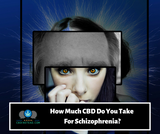


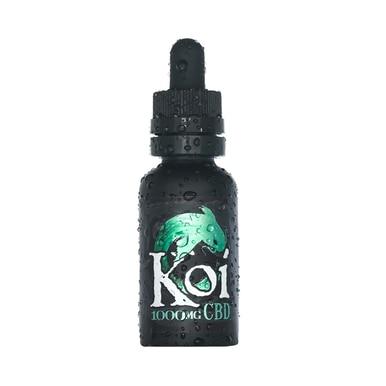



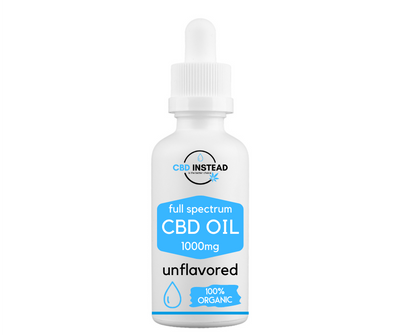
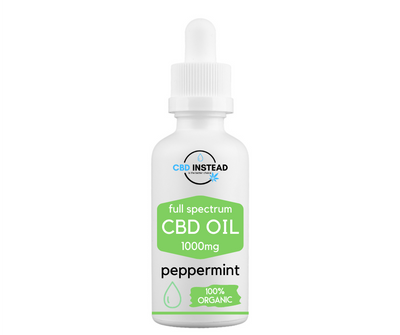
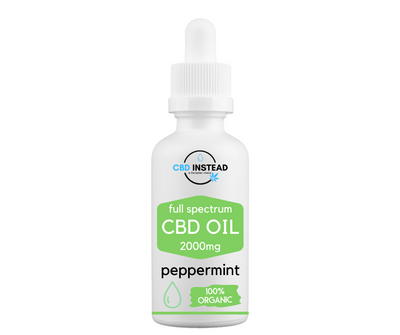
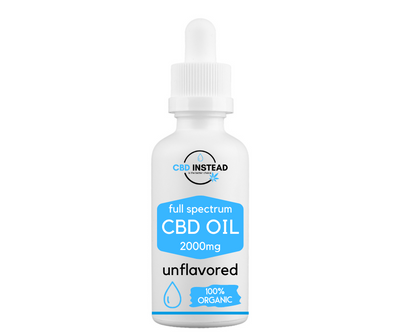
Hey Sharron,
Unfortunately, we are still only delivering to the United States. We will be making a big announcement once we start delivering in other countries!
CBD Instead
Can I buy this in canada